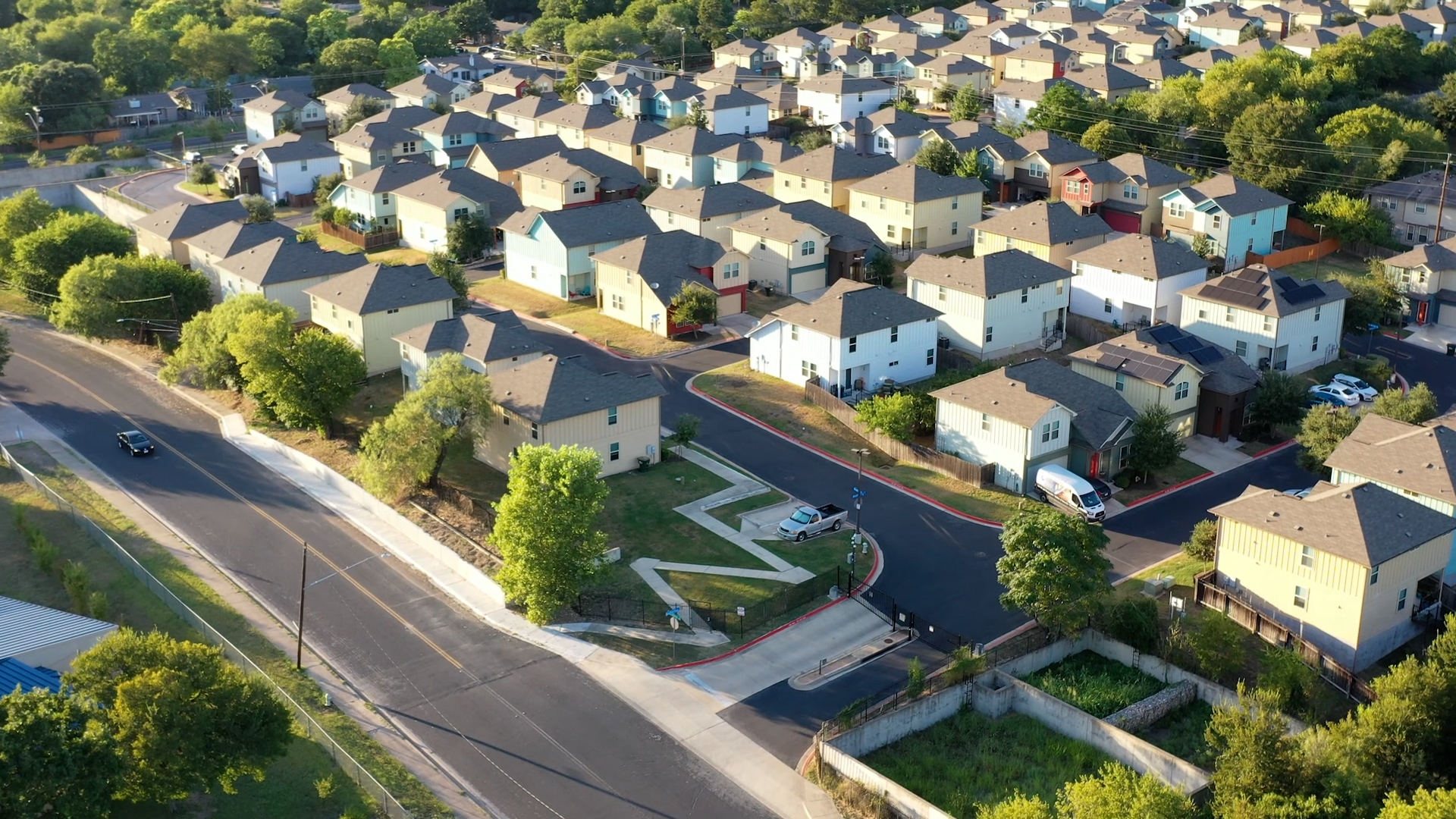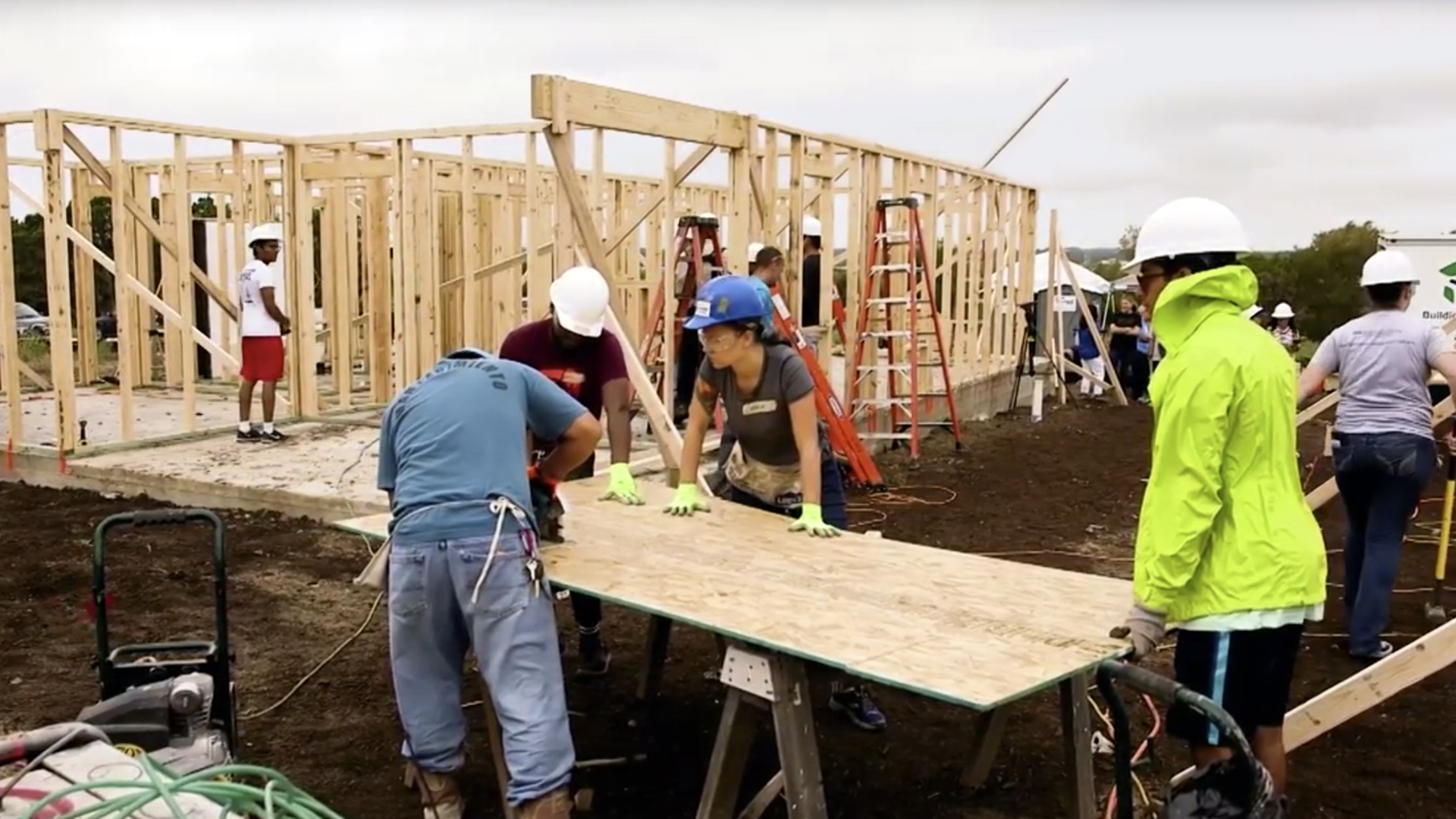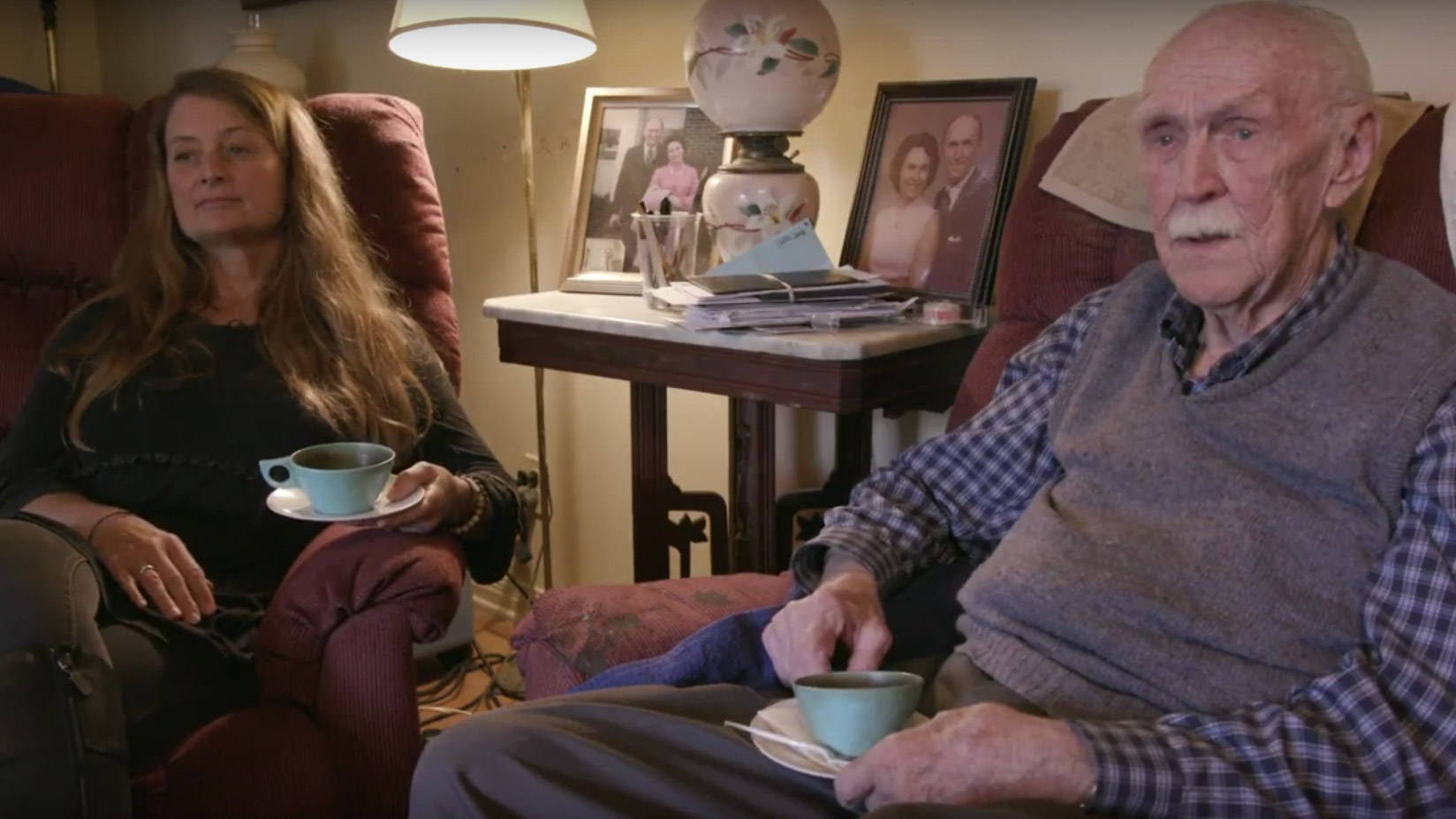
Need Some Holiday Help? Check Out Our Housing Resource Guide
There may be no place like home for the holidays, but housing challenges can make the season much less bright. Since 2019 rents have increased nationwide. Pandemic-era assistance programs meant to keep people from being evicted have wound down. And homelessness has seen a 12% spike compared to last year, with many people experiencing homelessness for the first time. That mirrors local needs in Austin. On average, the largest request for assistance received by United Way Of Greater Austin earlier this year was for housing, specifically rent and bills.
So to help spread a little holiday cheer, the Decibel team has compiled a list of resources around some of those top needs: bills, rent, housing repairs and food access. Looking to give back this holiday season? We got that covered too. You’ll also find a list of volunteer opportunities where you can donate your time, money or skills.
This by no means is a comprehensive list of all the assistance programs available in Austin, and many people’s needs are complex. For a more in-depth list of resources in Central Texas including childcare and job training, visit ConnectATX or call 833-512-2289.
Bills and utilities
The City of Austin Utilities offers several financial assistance programs. The Financial Support Plus 1 program provides emergency financial help for residents experiencing unexpected challenges like losing a job or sudden illness. Those interested need to fill out this form and their application will be reviewed by social service agencies in the community.
Low-income residents or those receiving state or federal assistance like SNAP or Medicaid might also qualify for utility bill discounts through the City of Austin’s Customer Assistance Program, or CAP. Check their website for qualifications and to submit an application.
If a member of a household has health issues that could be impacted by the power going out, residents can also apply for the Medically Vulnerable Registry. Customers work with a case manager to create personalized power backup plans, assistance with bills, and connections with social service agencies. Check their website for qualifications.
Travis County utility assistance programs can help residents struggling with bills. Their site says assistance isn’t limitless; residents must meet certain qualifications, and there is a cap on how much funding a person can receive per year. To learn more and apply, visit their website.
The City of Austin also has six neighborhood centers across north, south and east Austin. Along with food access and bus passes, residents can also apply for emergency assistance with rent and bills. Find out more and how to apply here.
St. Austin Catholic Parish has two outreach programs: Outreach To Persons In Need, and St. Vincent de Paul Society. Both offer rent and utilities assistance.
All Saints Episcopal Church offers assistance with rent and utility bills. They can also offer bus passes and $10 HEB giftcards, but recipients can only receive one type of assistance every six months.
St. James Episcopal Church Neighbor 2 Neighbor program offers assistance to eligible Austin Energy customers.
Greater Mt. Zion Church offers assistance with bills and utilities through their Community Assistance and Referral Ministry.
Catholic Charities of Central Texas offers short term assistance with utilities, rent and mortgages.
St. Matthews Episcopal Church’s Good Faith Fund can help applicants with utilities.
St. Louise House provides electric bill assistance.
If you’re a grandparent raising a grandchild, the statewide program Grand Love can assist with utility bills, shutoff notices, and prescriptions.
Rent
The Housing Authority of the City of Austin, or HACA, offers subsidized housing options. Applicants can apply to live in public housing properties across the city if they qualify for assistance. HACA also manages the Housing Choice Voucher program in Austin, but their website says applications are closed at this time.
The City of Austin also offers the Affordable Housing Online Search Tool, or AHOST. Residents can browse an interactive map to find housing that fits their household size and income.
The Housing Authority of Travis County also operates a Housing Choice Voucher program. If approved, residents can live anywhere in the county that meets their requirements and accepts the vouchers. HATC also operates several public housing complexes around the county. Go here to find out more about applying.
For families with children 18 years or younger, they may qualify for Temporary Assistance For Needy Families, or TANF. These monthly cash payments can be used on necessities such as rent, food, and medical supplies. Visit the Texas Health And Human Services site to learn about applying.
El Buen Samaritano offers rental assistance to those facing eviction. The program assists with rent, storage and relocation costs.
Caritas of Austin provides rehousing programs for families and individuals dealing with short-term homelessness.
LifeWorks Austin can provide housing assistance to people younger than 24 who are currently experiencing homelessness.
Catholic Charities of Central Texas offers short term assistance with utilities, rent and mortgages.
The City of Austin also has six neighborhood centers across north, south and east Austin. Along with food access and bus passes, residents can also apply for emergency assistance with rent and bills. Find out more and how to apply here.
St. Austin Catholic Parish has two outreach programs: Outreach To Persons In Need, and St. Vincent de Paul Society. Both offer rent and utilities assistance.
All Saints Episcopal Church offers assistance with rent and utility bills. They can also offer bus passes and $10 HEB giftcards, but recipients can only receive one type of assistance every six months.
BASTA is a nonprofit organization focused on renters’ rights and protections. Their Eviction Mitigation Team has resources for those facing eviction, as well as information on requesting repairs and building tenants associations.
Foundation Communities operates several apartment complexes across the city for low-income individuals and families. To see if you qualify, visit their site here.
Home Repairs
The City of Austin Housing and Planning Department offers repair grants through its GO Repair! program. Lower income households can receive funds of up to $20,000 to fix hazardous issues such as decaying roofs or faulty wiring. Homeowners can also apply for the Home Rehabilitation Loan Program. Those who qualify can receive a 0% interest loan of up to $75,000 to repair major interior and exterior issues.
Travis County offers both home repairs and weatherization improvements for eligible residents. You can find out more on both programs here.
The Austin Tenants Council offers information and phone counseling on tenant rights, housing discrimination, and housing repair.
BASTA is a nonprofit organization focused on renters’ rights and protections. Their site offers information and resources on code compliance, repair requests, and renters’ rights.
The Austin Area Urban League offers emergency and critical repairs to homeowners. You can find out more or see qualifications here.
Austin Habitat For Humanity helps low-income homeowners with roof repairs, replacing doors and gutters, among other things. Anyone who meets the income guidelines are welcome to apply, but they usually serve older residents and those with disabilities.
Food
The Central Texas Food Bank has an interactive map where residents can search for groceries, hot meals or kids meals in their area.
The City of Austin also has six neighborhood centers across north, south and east Austin. Along with food access and bus passes, residents can also apply for emergency assistance with rent and bills. Find out more and how to apply here.
El Buen Samaritano operates a mobile food pantry and a drive-through food pantry. The drive-through location also offers pet food, diapers, and women’s hygiene products.
The ATX Free Fridge Project has several locations across town. Neighbors can donate or pick up food items 24/7. Visit their website to find area locations.
Go! Austin/ Vamos! Austin or GAVA, delivers fresh produce from the Urban Roots farm to Dove Springs residents in need. Find out more and sign up here.
St. James Episcopal Church Neighbor 2 Neighbor program offers free food and diapers.
The Sustainable Food Center increases access to fresh produce for residents using nutritional assistance programs like WIC or SNAP. Find out more about the Double Up Food Bucks program and the WIC Voucher program here.
Volunteer
St. Austin Catholic Parish needs volunteers to speak with residents about financial assistance.
Donate to the All Saints Episcopal Church Loaves and Fishes program which helps residents with utilities, rent and bus passes.
Donate canned goods or sign up as a virtual volunteer for the St. James Episcopal Church Neighbor 2 Neighbor program.
Are you a licensed contractor? You can sign up with the Austin Area Urban League’s Emergency Home Repair Program to assist low-income homeowners with crucial repairs.
Volunteer to build and repair homes with Habitat for Humanity.
Donate as an individual, business or organization to the City of Austin’s Plus 1 or Gift of Comfort programs to help Austinites with their energy bill.
The Central Texas Food Bank has volunteer opportunities across town at its mobile food pantries, community kitchens, gardens and warehouse. Find out more about different ways to help here.
The ATX Free Fridge Project is always accepting donations for food, personal hygiene products, and diapers. For more donation guidelines or to sign up to help clean a fridge, check out their site here.
Brighter Bites provides fresh produce and healthy food to students across Austin. Volunteers can help with distributing produce, classroom demonstrations and nutritional education. Visit their site to learn more.
Community journalism doesn’t happen without community support.
Got story ideas, advice on how we can improve our reporting or just want to know more about what we do? Reach out to us at news@klru.org.
And if you value this type of reporting, then please consider making a donation to Austin PBS. Your gift makes the quality journalism done by the Decibel team possible. Thank you for your contribution.
More in Health:
See all Health posts










Contact Us
Email us at news@klru.org